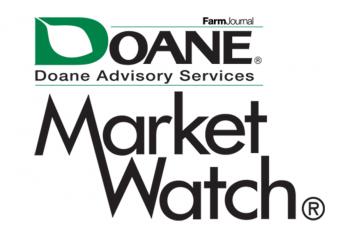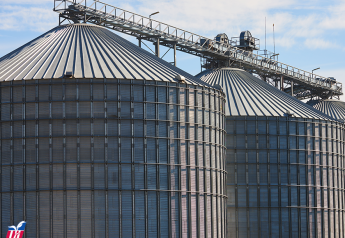Evening Report: March 8, 2022

Click here to view the weekly Commitments of Traders charts.
Check our advice monitor on ProFarmer.com for updates to our marketing plan.
Russia/Ukraine update... Ukrainian civilians began leaving two besieged areas after Russia opened “humanitarian corridors” Tuesday. However, the fighting in a large part of the country continued. Ukrainian President Volodymyr Zelenskyy called for the expansion of humanitarian corridors of the country, including the capital, Kyiv. Poland agreed to give all of its MiG-29 fighter jets to the U.S., agreeing to an arrangement that would allow them to be used by Ukraine’s military.
McDonald’s Corp said it would temporarily close its restaurants and pause all operations in Russia. Coca-Cola Company also suspended its business in Russia. Unilever became the first major European food company to stop imports and exports out of Russia. The London Metal Exchange halted trade in nickel after prices of the metal, a key component in electric vehicle batteries, doubled to more than $100,000 a metric ton.
U.S., Britain and Shell Oil halt Russian oil imports... On Tuesday, President Joe Biden announced a ban on Russian oil and other energy imports into the United States. Britain plans to phase out all Russian oil and gas by the end of 2022. Shell Oil will no longer purchase Russian crude oil and phase out its involvement in all Russian hydrocarbons.
Biden predicted oil prices would continue to rise but pledged to do all he could to minimize the impact on the American people. Bank of America analysts added that less than half of Russia’s overall crude exports could be replaced by a combination of incremental U.S. shale production, barrels coming from Iran and increases by OPEC+. Rystad Energy, a Norway-based consultancy, predicts oil prices could hit $200 per barrel.
Venezuela’s President Nicolas Maduro has agreed to future talks with a U.S. delegation that he met on Saturday. However, no future meeting date has been set. Venezuela and the U.S. were reported to have talked about “energy security,” among other items.
Putin orders export ban... In response to the U.S. and other world sanctions, Russian President Vladimir Putin issued a vague order halting some goods and raw material exports, Bloomberg reported. Russian government officials were ordered to prepare a list of countries to apply the export sanctions to within two days. Russia said more details on what products would be restricted from being shipped would be released in the future.
EIA notes greater uncertainty in forecasts... The U.S. Energy Information Administration’s (EIA) Short-Term Energy Outlook is subject to “greater-than-usual uncertainty,” as it has increased significantly with Russia’s invasion of Ukraine. The agency said some of the most significant factors it is watching include nations could choose to ban imports of Russian energy, additional sanctions against Russia could be announced, corporations could take additional independent actions that would affect Russia’s oil output and producers of crude oil outside Russia could respond to higher prices by increasing production.
EIA will continue to monitor market dynamics in the energy sector and publish updated information to support a fuller understanding of the evolving situation.
EIA predicts higher oil, gas, and diesel prices... Oil prices are expected to increase to an average of $117 per barrel for March, up $20 from its February average, EIA said in its Short-Term Energy Outlook. The report was finalized on March 3 before some Russian oil sanctions were announced. EIA predicts oil prices will average $116 for the second quarter of the year, $102 for the second half of the year and $83 for 2023.
U.S. regular retail diesel prices hit their highest prices since March 2013 at $4.03 per gallon in February. Diesel prices are forecast to average $4.43 during the second quarter of the year and $4.04 over the second half of 2022. February retail gas prices averaged $3.52 per gallon, up 20 cents from January and up $1.02 from a year ago. Gas prices are forecast to average $4.10 for the second half of the year and $3.71 for the second half. It would be the first time the national average gas price reached over $4.00 since July 2008.
Goldman Sachs remains bullish for grain, cotton prices... Grain and cotton prices will likely continue to push higher, Goldman Sachs said in a note to investors and reported by Bloomberg. The firm predicts corn prices could reach $7.75 per bushel by summer, $17.50 for soybeans and $12.50 for wheat. They note new-crop contracts are lagging front-month contracts. Goldman Sachs analysts think new-crop corn and cotton will gain the most as they try to catch up to wheat prices.
The firm doubts U.S. farmers can offset Ukraine/Russia’s global supply shortages due to limited additional U.S. capacity and more potential production shortages from Ukraine.
Senator asks Vilsack to allow CRP flexibility... In a letter, Sen. John Boozman (R-Ark.) is asking Ag Secretary Tom Vilsack to delay the CRP sign-up deadline, flexibility to purchase crop insurance, allowing livestock grazing on CRP land without penalty and a one-time waiver to plant a spring crop on non-environmentally sensitive CRP cropland. The Senate Agriculture Committee Ranking Member said the request could allow U.S. farmers to produce more and control food inflation costs.
U.S. trade deficit sets record... January’s U.S. trade deficit set a record at $89.7 billion, up 9.4%, according to the Department of Commerce. In a Reuters poll, economists predicted an $87.1 billion deficit. The department revised the December trade deficit to $82.0 billion, $1.3 billion more than previously reported.
Total Imports increased 1.2% to $314.1 billion, also a record. Goods imports set a record at $264.8 billion, up 1.8% on record food, capital and consumer goods arrivals. Service imports declined $1.0 billion to $49.3 billion. January’s exports totaled $224.4 billion, down 1.7%. Goods exports dropped to $155.9 billion, down 1.5%. Service exports decreased $1.6 billion to $68.5 billion.
China watching Russian commodity firms for purchase opportunities... China might buy or invest more into Russian commodity firms to help guarantee its future supplies of raw materials, reported Bloomberg. Chinese government officials are in early-stage discussions about potential investments in Russian companies or assets with several Chinese state-owned firms. The commodity firms could include energy, metals and food organizations. Some talks between Russian and Chinese energy companies have already started.






